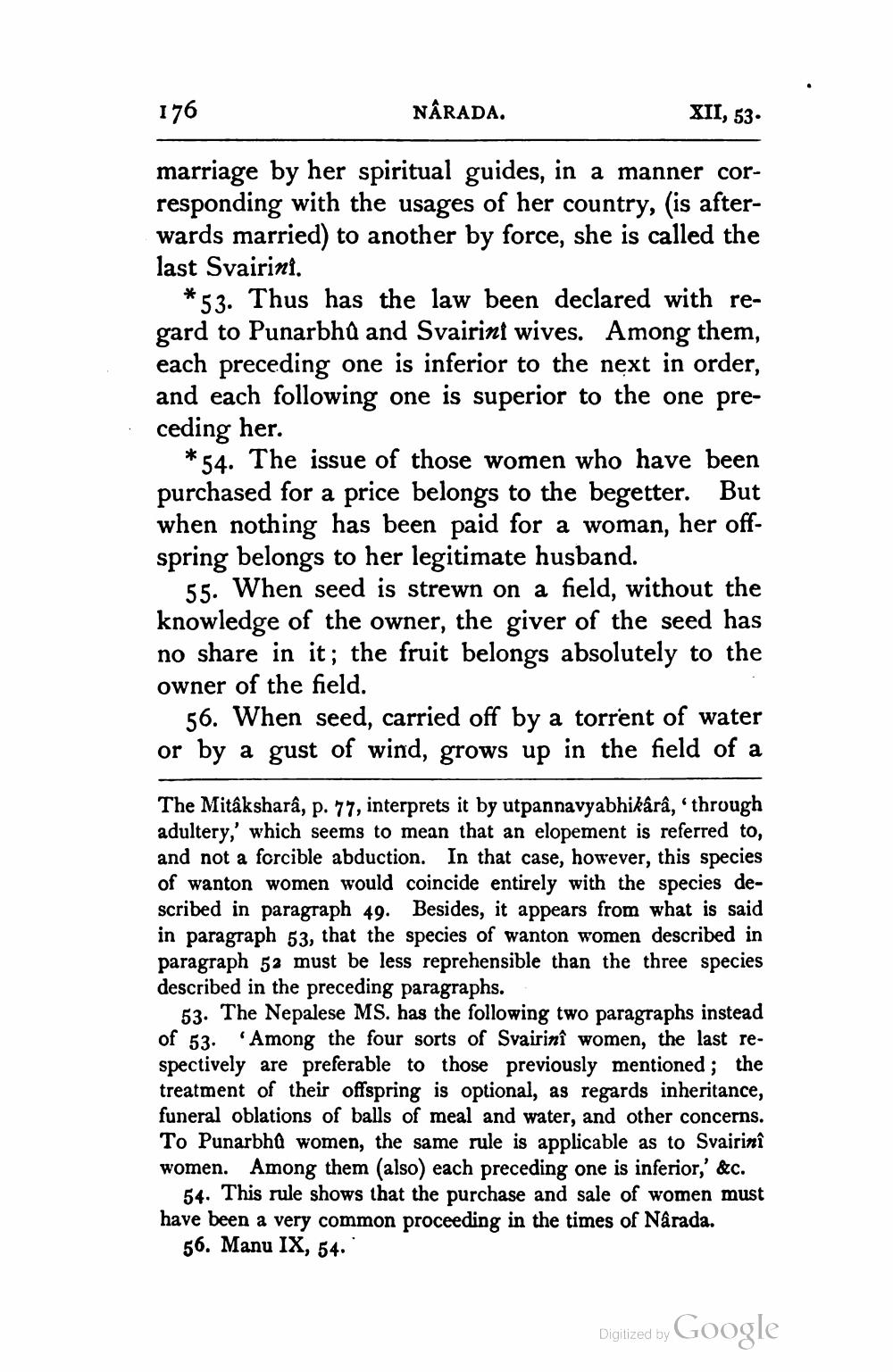________________
176
NÂRADA.
XII, 53.
marriage by her spiritual guides, in a manner corresponding with the usages of her country, (is afterwards married) to another by force, she is called the last Svairini.
*53. Thus has the law been declared with regard to Punarbhů and Svairini wives. Among them, each preceding one is inferior to the next in order, and each following one is superior to the one preceding her.
*54. The issue of those women who have been purchased for a price belongs to the begetter. But when nothing has been paid for a woman, her offspring belongs to her legitimate husband.
55. When seed is strewn on a field, without the knowledge of the owner, the giver of the seed has no share in it; the fruit belongs absolutely to the owner of the field.
56. When seed, carried off by a torrent of water or by a gust of wind, grows up in the field of a
The Mitakshara, p. 77, interprets it by utpannavyabhikârâ, through adultery,' which seems to mean that an elopement is referred to, and not a forcible abduction. In that case, however, this species of wanton women would coincide entirely with the species described in paragraph 49. Besides, it appears from what is said in paragraph 53, that the species of wanton women described in paragraph 52 must be less reprehensible than the three species described in the preceding paragraphs..
53. The Nepalese MS. has the following two paragraphs instead of 53. Among the four sorts of Svairinî women, the last respectively are preferable to those previously mentioned ; the treatment of their offspring is optional, as regards inheritance, funeral oblations of balls of meal and water, and other concerns. To Punarbh women, the same rule is applicable as to Svairinî women. Among them (also) each preceding one is inferior,' &c.
54. This rule shows that the purchase and sale of women must have been a very common proceeding in the times of Narada.
56. Manu IX, 54.
Digitized by Google




